Summary
This in-depth genealogy resource presentation describes the work of the "Grodzka Gate-NN Theatre" Centre to reclaim Jewish memory in Lublin, Poland. Specifically, it will explain its 43 Thousand Project and provide a hands-on approach to explore the public access database http://teatrnn.pl/people that can possibly add names to your family tree. The presentation will touch also on the Antwerp Lublin project, JRI-Poland.org and other sources of genealogy data for the Lublin region in Poland.
The Lublin. 43 Thousand project refers to the estimated number of the Jewish men, women, and children residing in the Polish city of Lublin in 1939 on the eve of the outbreak of the World War 2. Many of these residents had birth origins and relations with towns and villages located throughout the Lublin region and beyond. The project's mission is to recover each name. "Grodzka Gate-NN Theatre" Centre staff are exploring archives, listening and reading personal testimonies, extracting data from private collections and examining every possible piece of information in order to retrieve names, photos, documents and stories of people. The materials gathered during the research are transcribed, sourced and added to an advanced database which consists of four core modules: 1) People, 2) Places, 3) Events, 4) Sources. Whenever possible, the information is referenced across all modules to advance the possibility of connecting individuals and highlight their relationship with other people, places, events, and reference sources. Over 44,000 sourced points of individual information have already been entered in this ever growing database.
The Lublin. 43 Thousand project refers to the estimated number of the Jewish men, women, and children residing in the Polish city of Lublin in 1939 on the eve of the outbreak of the World War 2. Many of these residents had birth origins and relations with towns and villages located throughout the Lublin region and beyond. The project's mission is to recover each name. "Grodzka Gate-NN Theatre" Centre staff are exploring archives, listening and reading personal testimonies, extracting data from private collections and examining every possible piece of information in order to retrieve names, photos, documents and stories of people. The materials gathered during the research are transcribed, sourced and added to an advanced database which consists of four core modules: 1) People, 2) Places, 3) Events, 4) Sources. Whenever possible, the information is referenced across all modules to advance the possibility of connecting individuals and highlight their relationship with other people, places, events, and reference sources. Over 44,000 sourced points of individual information have already been entered in this ever growing database.
Speaker Bio
Olivier Szlos is a New York City resident and a Paris native. A fundraising professional, he has worked in the nonprofit sector for over 20 years helping several organizations such as the Museum of Jewish Heritage - A Living Memorial to the Holocaust. For over thirty years, he has been researching his family in France, in Poland and ten other countries. The majority of his family has Lublin origins. Olivier has visited and worked with Ośrodek "Brama Grodzka - Teatr NN"/"Grodzka Gate - NN Theatre" Centre in Lublin these past three years. He attended a reunion of 200 Shoah survivors, their families, and descendants of Lublin Jews organized by "Grodzka Gate - NN Theatre" Centre in 2017 in Lublin. He has visited Lubartow and Belzyce among his other ancestral family towns in the Lublin region. Throughout the years, he has worked with archives and institutions, and donated Szlos family papers to the Shoah Museum in Paris. He volunteers with the JRI-Poland Lubartow Town Project to raise money and help with indexing records. He was a presenter at the IAJGS 2018.
